Guatemala’s La Voz cooperative is special to us here at Taylor Maid Farms. As our longest running partnership, this progressive co-op has hosted us several times over the years. This February, a group of us had the incredible opportunity to visit the farm during harvest. For many of us, this was our first trip to origin and witnessing the harvest process firsthand was an experience we won’t soon forget.
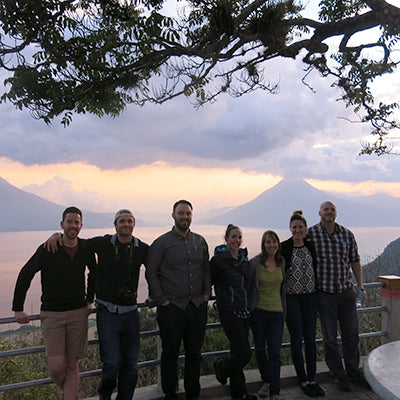
The cooperative is located in southwestern Guatemalan highlands in the stunning Lake Atitlán region, surrounded by three towering and majestic volcanoes. We arrived at sunset just in time for especially stunning views!
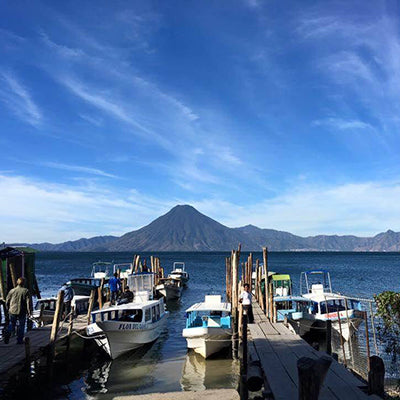
The next morning we took a short boat ride from the city of Panajachel to the farm, which is on the slopes of San Pedro volcano in the background.
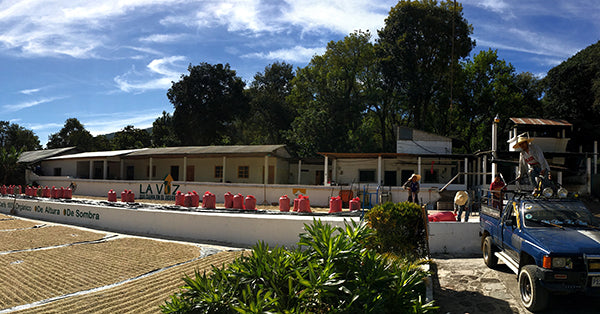
We arrived to workers bagging and transporting coffee on the drying patio.
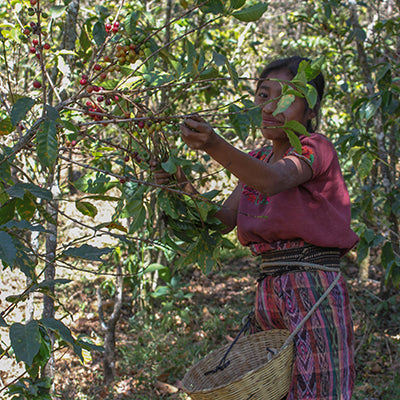
We were then taken on a tour of the property, as women picked ripe coffee cherries from the trees. Specialty coffee is harvested by hand to ensure that the ripest cherries are selected.
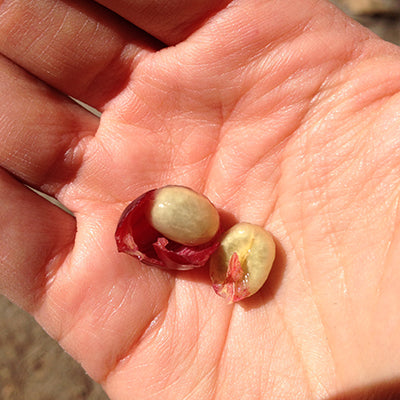
Two seeds are contained in each coffee cherry and a single tree typically produces only a pound of coffee a year! The cherry itself contains caffeine and is sweet and slightly spicy like a red bell pepper.
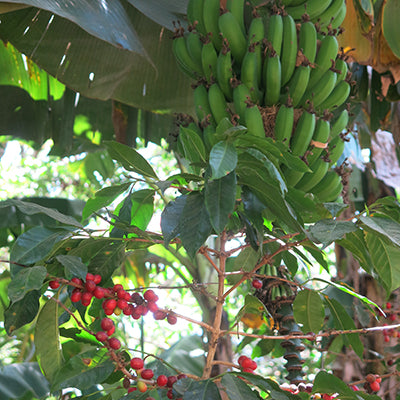
Coffee trees thrive in shaded environments. La Voz’s rich shade tree canopy includes bananas, mango, plantain, and avocado trees that provide additional income for farmers as well as maintaining habitat for migratory bird species. Co-op members put as much effort into managing this shade canopy as they do in managing the coffee itself.
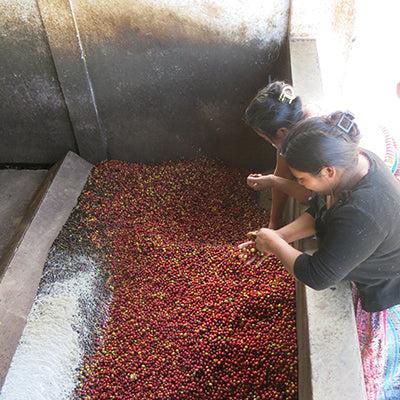
Once the cherries have been harvested they are further sorted by hand. Female co-ops members primarily harvest and sort the coffee and earn additional income by making and selling folk crafts and growing their own produce.
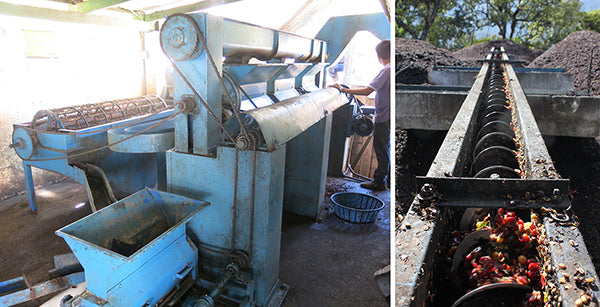
The coffee is then de-pulped removing the outer fruit and exposing a sugary mucilage layer. The cherries are then collected and later used as fertilizer.
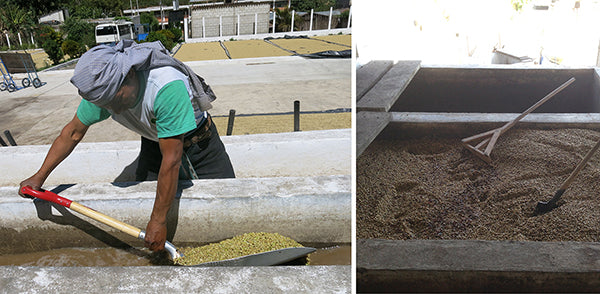
The seeds, still covered in protective layers mucilage and parchment, are transferred to cement tanks for 18+ hours. Once the mucilage has fermented to the point that the beans will adhere to a wooden rake, the coffees are then rinsed in a series of washing stations to remove the fermented mucilage. Water is sourced from an on-site spring and is recycled for irrigation.
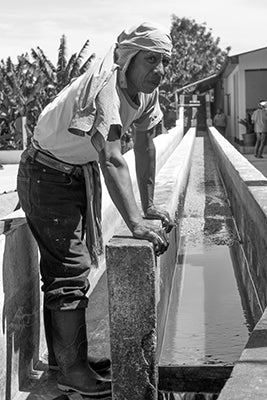
Lencho, one of the workers at the washing station, is a proud farmer who credited his co-op membership with allowing his three children to attend college- the first in their family.
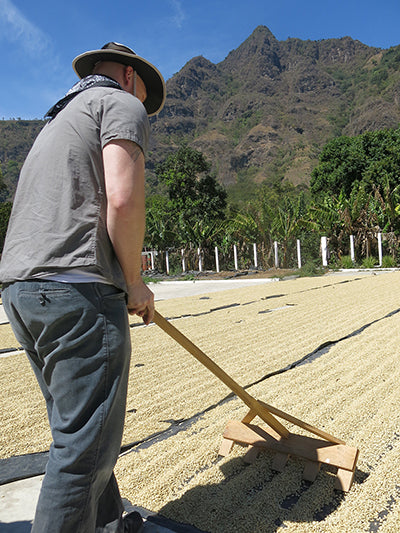
After being fermented and washed, the seeds are dried by the sun on patios and are raked frequently to ensure even drying. Here, our support roaster Miles takes his turn raking the rows!
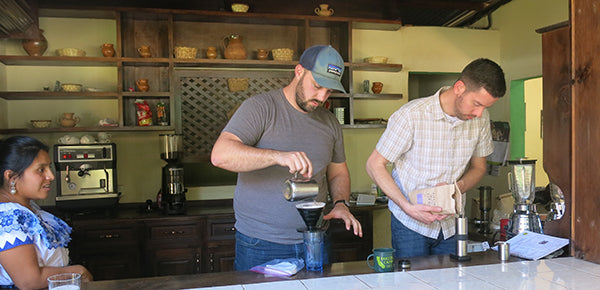
The circle is complete when we bring La Voz coffee, roasted in Sebastopol, back to the farm where it was born as Todd and Ryan brew up some pour overs and AeroPress for the farmers. We felt like this was a small way in which we could honor the dedication and love it requires to farm good coffee.
We left Guatemala with a profound appreciation for all that is required at origin. At any step along the way- harvest, processing, drying, shipping or unexpected weather- coffee could be spoiled and rendered unsellable. As most farmers are paid after harvest, spoiled coffee has direct effect on their livelihoods. It's with this awareness that we give the utmost gratitude for quality coffee, grown not only with responsibility and in stewardship to the environment but for the farmers who make coffee possible.
Every year we roast La Voz's fresh harvest and are proud to feature it this summer as our single origin coffee. Taste for yourself the culmination of over 90 years of experience and devotion here.
Leave a comment